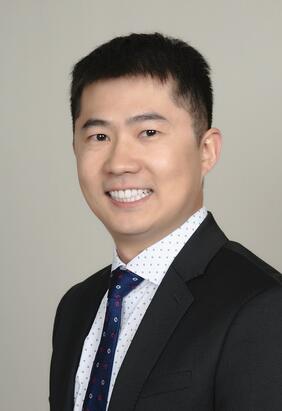
- Ph.D., Civil Engineering, Pennsylvania State University, University Park, Pennsylvania, 2018
- M.Eng., Architectural and Civil Engineering, Tongji University, Shanghai, China, 2014.
- B.S., Civil Engineering, Tongji University, Shanghai, China, 2010.
- Professional Engineer (PE, Civil), California, No. 92364
- Professional Engineer (PE, Civil), Texas, No. 138630
- 09/2021 – present, Assistant Professor (Tenure-Track), Oregon Institute of Technology, Klamath Falls, Oregon
- 08/2018 – 08/2021, Staff and Senior Staff Engineer, Geosyntec Consultants, Richmond, Virginia.
Soil dynamics and earthquake engineering, geotechnical instrumentation, solid waste engineering and non-textbook soil.
Dr. Jintai Wang is an assistant professor of civil engineering at Oregon Tech. He received his bachelor’s and master’s degrees in civil engineering from Tongji University and a Ph.D. in Geotechnical Engineering from Pennsylvania State University. Dr. Wang has three years of industry experience in geotechnical design, construction, instrumentation, and data management with Geosyntec Consultants. He is excited to bring the real-world applications on large and complex civil infrastructures such as foundations, dams, landfills, coal ash impoundments and pipelines into his classroom for undergraduate and graduate courses and laboratories. Dr. Wang is a registered Professional Engineer in the states of California and Texas. Dr. Wang research interests include liquefaction evaluation, geotechnical instrumentation, solid waste engineering and non-textbook soil. He currently serves on three ASCE technical committees: Frozen Ground, Earthquake Engineering and Soil Dynamics, and Embankments Dams and Slopes.
- Wei, Y., Yang, Y., Wang, J., Liu, H., Li, J., and Jie, Y. (2023). Performance evaluation of high energy dynamic compaction on soil-rock mixture geomaterials based on field test. Case Studies in Construction Materials, 18, e01734.
- Wang, J. (2022). Field Observation of Construction-Induced Liquefaction during Closure of a Coal Ash Impoundment. Journal of Geotechnical and Geoenvironmental Engineering, 148(6), 02822002.
- Wang, J., Salam, S., and Xiao, M. (2020). “Evaluation of the effects of shaking history on liquefaction and cone penetration resistance using shake table tests.” Soil Dynamics and Earthquake Engineering, 131, 106025.
- Zhang, C., Yan, Q., Zhao, J., and Wang, J. (2020). “Formulation of ultimate bearing capacity for strip foundations based on the Meyerhof theory and unsaturated soil mechanics.” Computers and Geotechnics, 126, 103734.
- Wang, J., Xiao, M., Evans, J., Tong, Q., and Salam, S. (2019). “Time-Dependent Cone Penetration Resistance Variation of a Post-Liquefaction Sand Deposit at Shallow Depth.” Journal of Geotechnical and Geoenvironmental Engineering. 145 (6): 04019021.
- Wang, J., Salam, S., and Xiao, M. (2019). “The Effect of Shaking History on Liquefaction Resistance of Sand Deposit Using Shake Table Testing.” In ASCE Geo-Congress 2019: Earthquake Engineering and Soil Dynamics (pp. 285-293), GSP 308. Reston, VA.






